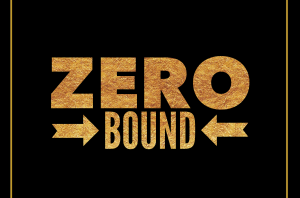SUNIL DHAROD built a restaurant empire from nothing!
ON FEBRUARY 3, 1986, Sunil Dharod took all the money he had and bought his first restaurant, a Jack In The Box in Los Angeles, California. At 21 years old he became the youngest franchisee in the history of the brand.
Today, Sunil has grown that initial $240,000 investment into a restaurant empire that includes 64 Applebee’s, 48 Sonic Drive-In’s, 16 Roy’s restaurants, one Slim Chickens and a number of real estate holdings including shopping centers and apartment buildings.
His philosophy is simple: “Working is a good thing … nothing will ever go wrong if you’re working.”
He would know; he’s worked his entire life.
Growing up in India, Sunil was three when his father died; overnight, the family’s wealth evaporated.
“I started working at the age of seven,” he says. Sunil delivered milk twice a day and did odd jobs whenever he could. His two older brothers worked too. His mother worked as a seamstress, delivered milk and would travel by train across the country to purchase rationed foods that she could then sell for a profit in their hometown.
They still struggled to make ends meet and his mother would often borrow money from his mother’s uncle. “She always paid it back,” he says.
They still struggled to make ends meet and his mother would often borrow money from his mother’s uncle. “She always paid it back,” he says.
A wealthy man, the uncle was happy to help but baffled by his niece’s insistence on working. “I remember him asking my mom, ‘Why are you doing all this work and making kids work? I can just send you money.’”
“If I take money from you, my kids aren’t going to learn anything,” she responded. “She was 100 percent correct,” says Sunil.
At 15, Sunil moved to the U.S. with his family. “It was July 11, 1980,” he says. “It was my first time on a plane and when the door opened and I stepped down … there was a feeling that we were going to make something out of it.”
From India to L.A., the Dharod family brought their strong work ethic with them. On his sixteenth birthday, Sunil started to work at a local Carl’s Jr.
That summer he held three jobs. “I worked at Carl’s Jr. almost full time (32 hours), another 32 hours at Jack In The Box, and on the weekends, I worked at an Indian restaurant for about 16 hours Friday and Saturday evenings,” he says. Within three months, he saved $1,200.
When he finished high school, he studied to be an automotive tech. “As a kid I always wanted to be a mechanic. There was an old clock at home that would always stop working. I would always take it apart and fix it,” he says.
He got a job as a line mechanic at a Volvo dealership. “I was making close to $100,000 a year,” he says. While his base salary was just $55,000, he worked in the evenings and weekends fixing cars and changing oil. He would also buy cars, fix them up and sell them. He was still a teenager.
Soon after marrying his wife, Sharmilla, he purchased his first Jack In The Box. “There was no fear or thought of something not going right, we knew we’d make it no matter what. The plan was just to improve life, grow the business—to make today better than yesterday.”
With his prior experience flipping burgers, and a lot of hard work, he grew sales from $500,000 to over $800,000. “We brought the drive-thru speed of service time down from over three minutes to two minutes,” he says. “We remodelled the entire restaurant ourselves.”
One location grew to six, but when Jack In The Box refused to sell him more he sold them all in October of 1992, just two weeks before the e coli outbreak that crippled the brand.
“If I wanted to continue to grow I needed a bigger name,” he says. He filled out applications for Wendy’s, McDonald’s, Arby’s and Burger King.
A deal with Burger King brought him to Texas and he decided to buy 12 Burger Kings in Dallas.
Twelve grew to 18 to 19 and then, in 1999 he bought 11 Blockbuster franchises. “It was a good business back then,” he says. While he didn’t get out “in time” and had to shut them down one by one, he doesn’t have any regrets. “We didn’t lose money on Blockbuster, it was very profitable,” he says.
Over the following two decades, Sunil has grown his business considerably. While the brands have changed and the numbers continue to grow, two things have remained consistent: “Nothing will ever go wrong if you’re working,” he says again. And, “It’s all about people.”
“Everybody understands that we really care,” he says. “It matters to us what happens to them; it matters to us what happens in their lives.”
After Hurricane Harvey, the entire senior leadership team, based in Dallas, spent weeks in Houston supporting their employees and their families in a variety of ways: from taking and distributing supplies to helping with clean-up.
Philanthropy, specifically feeding hungry people, is one of Sunil’s passions. Before moving to the U.S., Sunil recalls surviving on wheat tortillas and raw onions.
“In India, a lot of people sleep hungry,” he says. While the company hosts annual fundraisers across all their brands, Sunil has set up his own local food foundation that aims to feed homeless people on Diwali, the Hindu festival of lights. “For Thanksgiving, there’s the Nobody Sleeps Hungry campaign … I’d like Diwali to become another day like that.”
Shortly after his daughter, Puja, started working for the company she founded the Puja Foundation which provides financial assistance to employees who are struck by disaster, catastrophe or the unexpected loss of loved ones.
Puja is now a director at the company, meanwhile her older brother, Chris, is president. Both underwent an 18-month training program that cycled them through every position in the company, from washing dishes to PR, before they were given their current roles.
“I remember one summer, 15 years ago, one aunt asked, ‘Why do these kids need to go to work?’ I told her, because of what I have there is more reason they have to go to work.”
While Sunil is low-key, his home is not.
With floor-to-ceiling marble, a home theatre, bowling alley and a modern wine cellar that suspends his vast wine collection in a wall of glass, Sunil’s home is a far cry from his humble beginnings.
Lit by a huge skylight, a red Enzo Ferrari takes pride of place.
Built with Formula One technology, the 12-cylinder mid-engine berlinetta sports car is one of perhaps four in Dallas and 400 in the world. The rest of his fleet are lined up in the garage: a Tesla, that his wife drives; a Bentley; three more Ferraris, two red and one yellow; and a Testarossa, the first Ferrari he ever bought.
“I have a saying for my life,” he lets on. “Barefoot to Bentleys.”
In a lifetime of work, Sunil learned the most from his mother.
“When I was eight years old, I dropped eight full bottles of milk” he says. “In one slip, I lost my entire month’s pay. For me, it was a disaster, but my mother was so positive, so encouraging. … She said we’d figure it out.
“A leader must be caring, honest and hard working,” he says.
“There is no place like America, he asserts. The Land of Opportunity is an understatement. You can achieve anything if you’re willing to work hard enough.”
Dharod Family Net Worth
As of 2021, the Dharod family has an estimated net worth of $80 million.
Source Plano Profile





